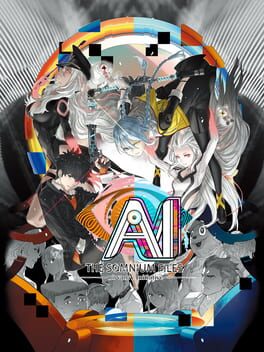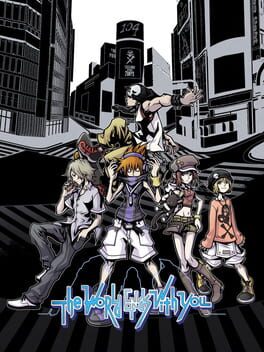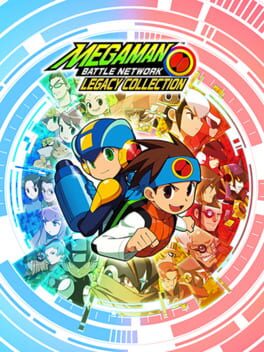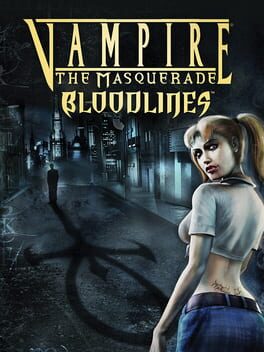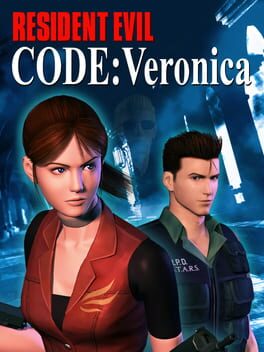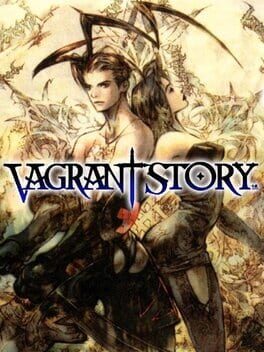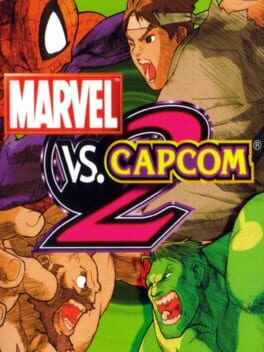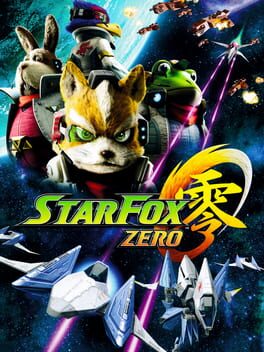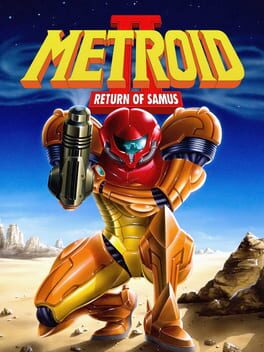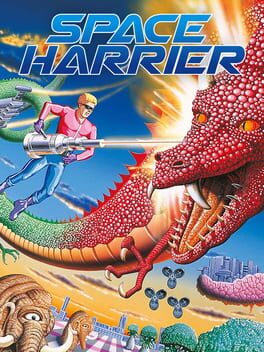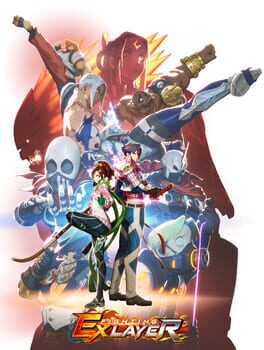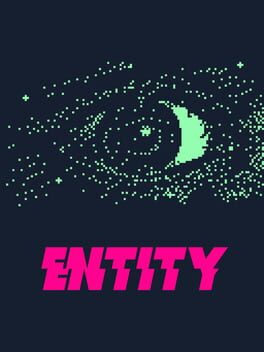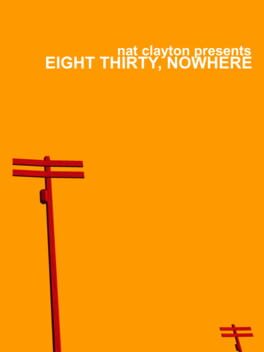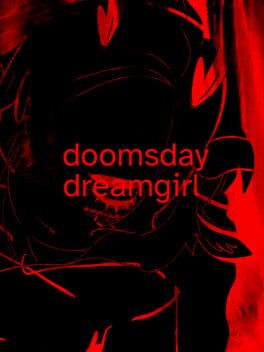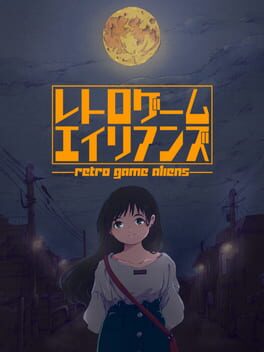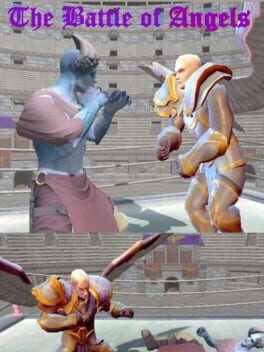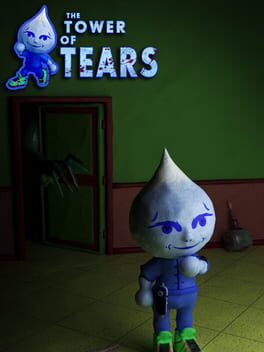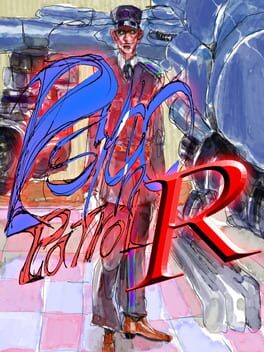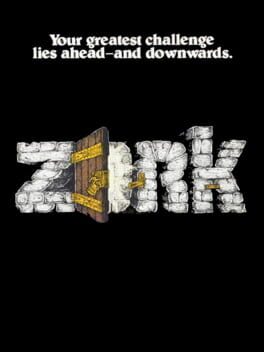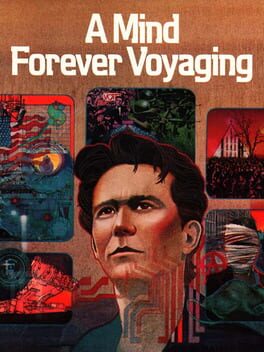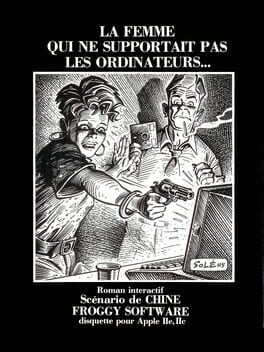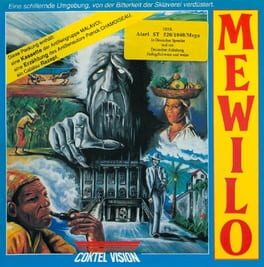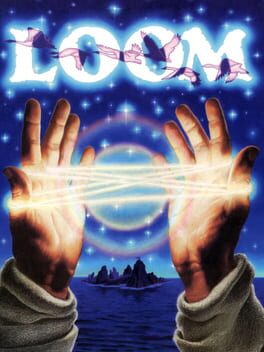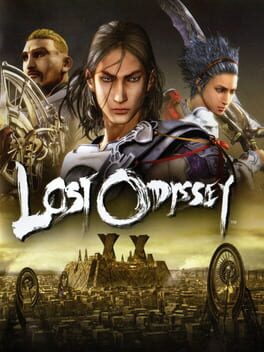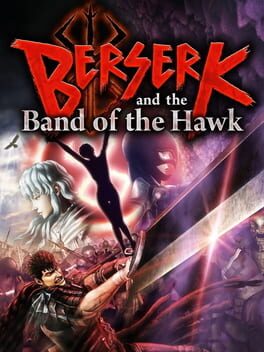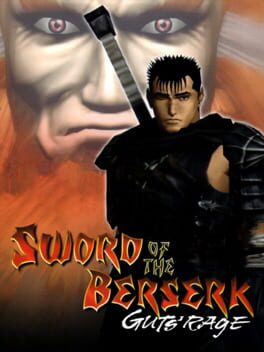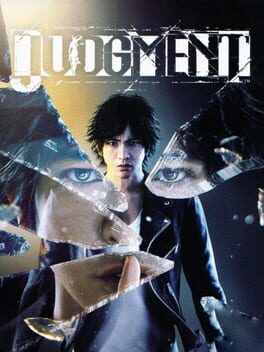SuperScabs
17 reviews liked by SuperScabs
CW: Incest, assault, sexual violence
Spoilers for Chapter One.
Completed the first “door” and decided I wouldn’t finish the game; everything I say in this review is limited to that opening vignette. What’s set up here is certainly well-intentioned: three central characters, each on the verge of adulthood and trapped by the rigidly defined gender roles and class structures of their 1600s environment and bearing the weight of several conflicting needs. However, in the two hours I spent with Fata Morgana, the game world’s overarching patriarchal capitalist system isn’t seriously interrogated or explored. There are a number of supporting adult characters subtly maintaining the oppressive framework: the priest insisting Mell marry within his class, Nellie’s chosen fiancée Arthur, solely interested in keeping up appearances, Nellie and Mell’s parents, the owners of the house exerting their influence from afar; a larger societal order and hierarchy are clearly hinted at, offering a possible canvas for the game to seize upon the concrete mechanics undergirding this type of systematic oppression, perhaps even explore potential solutions. This isn’t something Fata Morgana seems to be interested in, however: the characters perpetuating the system either have no lines at all (the mother and father) or only speak from off-screen! We only receive surface-level insight into this world’s politics and social dynamics, which is enough to rationalize the chain of events presented in the plot, but bereft of any deeper knowledge or meaning for the reader to extract.
We’re therefore presented with a relatively narrow character drama. This isn’t a flaw with the story necessarily — whatever you end up focusing on, it just needs to be compelling somehow. Unfortunately, what we do get is incredibly banal squabbles and eyeroll-inducing escalations that feel designed for shock value rather than to provide deeper insight. “Why won’t you spend more time with me dearest brother, you’re the only one for me,” “Okay number one that’s weird (you’re my sister,) number two I just fell in love with this white-haired chick at first sight,” “Didn’t you tell me you haven’t even met her yet? 🤨” “Uhm uhm.” In a word, the level of emotional strife and disagreeing motivations here comes across as juvenile; you might say this is because these characters are literally kids and that that’s kind of the point, but that’s not actually what I mean. It feels quaint to be reading this unremarkable back-and-forth dialogue about who spends too much time with whom, who has feelings for whom and who is instantly bewitched by whose beauty in a game about conventionally attractive people regularly described as such; specifically when you have books and films like A Girl on the Shore or How to Have Sex that navigate what I find to be much more challenging and actually-applicable-to-real-life topics like the intersection of romance, the craving for bodily intimacy and self-worth in subtle, artful and original ways. I’m throwing around a lot of adjectives here so I hope you’ll just see where I’m coming from and not ask for more specific scene-analyses LOL but I suppose this point in particular I’d be curious to hear more thoughts on.
To get at least a little more specific, Nellie’s character is a painful example of the jealous-friendzoned-girl doing a textbook version of the “I’m gonna pull some strings to make my object of desire think he has no chance with the bitch I’m competing with” trope. The misunderstandings pile up in the exact way you’d expect, until Nellie, devastated by the arranged marriage looming over her head and Mell’s apathy toward the situation, suffers a psychotic episode in which she physically assaults the white-haired girl and makes an explicitly sexual, non-consensual advance toward her brother. Since I’m critiquing the effectiveness and value of this type of writing, I feel the need to point out that any given player’s reaction to this arc will be incredibly subjective. If Metacritic and backloggd are any indication, you’ll likely have left off with a much different impression than I did, and it may be hard to see where I’m coming from (maybe you can tell that this is very different from my usual mechanics-focused analyses and that I have to reason from a mostly emotional angle LOL.) The argument I will make is that Nellie is an undeniable victim of an oppressive system, and yet she’s the only character in this self-contained story to carry out serious physical violence against another victim; and to me this does not function as effective critique of the system! (Quick aside, I had a very similar issue with Last Night in Soho’s final third and that shit seems way less bad in comparison now LOL) Instead, it comes across as unsympathetic and callous. Nellie is not just trapped by the patriarchy, but her incestual feelings toward Mell, and rather than seriously explore the internal whirlwind and self-analysis you’d expect to be part of that experience in any kind of depth, it genuinely feels more-so used as a way to gross out the player and lean into incredibly distasteful “freaky” Yandere iconography.
I can lay out all the plot beats and see the themes that are being touched on and understand the rationalizations being presented, but it doesn’t change the fact that presentation is narrative just as much as that Wikipedia summary. And in presentation, moment-to-moment, what I played of Fata Morgana rarely reaches past shallow, puerile and cowardly. I say “rarely” because as eyeroll-worthy as the aforementioned love-at-first-sight dynamic between Mell and the white-haired girl is, once they did confess their feelings to each other I couldn’t help but be surprisingly endeared by the hopelessly romantic prose and sensitive staging employed by the scene. The strength, or lack thereof, of the white-haired girl’s grip over Mell’s neck is something visual novels are uniquely poised to convey, in this case by suddenly flipping between slight alterations in otherwise static illustrations and buoy them with careful descriptions of subtle movements and bodily expressions.
But I also said the game was cowardly, because I can’t help but question its worldview when it chooses to have the white-haired girl “disfigured” by Nellie and then completely refuses to show her on-screen again from that point forward. I already noted earlier that Fata Morgana places repeated emphasis on conventional beauty, and flirting with this topic so much while blatantly skirting around any kind of alternative portrayal seems damning in my eyes. Mell’s assurances that he’ll love her regardless of her appearance can only read as hollow when the game doesn’t even seem to love its own characters enough to give them that kind of respect.
Fata Morgana consisting of, to my knowledge, at least a few largely self-contained stories has me relatively confident in the validity of this review; the main game does not revisit this particular scenario past what I played from what I understand. You might still think that this is shaky ground for me to stand on, but the entire point I hope I made here is that as a storyteller, you’re communicating things to your audience from minute one. If this opening isn’t an accurate representation of the game as a whole, then what was the point of it? If I’m to expect crucial subversions deeper into the story, how am I supposed to believe that they are any more tasteful or substantive than the dramatic turns utilized here? If the game spends two hours on this completely unoriginal love triangle, how will it tackle more difficult subjects? I’ve experienced complete, rich stories in that time-span, stories that consider their themes just as much as their form. I can certainly have Fata Morgana’s themes explained to me by its fans and acknowledge the sincerity ultimately laying beneath, but what I really needed in those two hours is for Novectacle to convince me they’re equipped to tell this kind of story; and I can’t say that I am.
Spoilers for Chapter One.
Completed the first “door” and decided I wouldn’t finish the game; everything I say in this review is limited to that opening vignette. What’s set up here is certainly well-intentioned: three central characters, each on the verge of adulthood and trapped by the rigidly defined gender roles and class structures of their 1600s environment and bearing the weight of several conflicting needs. However, in the two hours I spent with Fata Morgana, the game world’s overarching patriarchal capitalist system isn’t seriously interrogated or explored. There are a number of supporting adult characters subtly maintaining the oppressive framework: the priest insisting Mell marry within his class, Nellie’s chosen fiancée Arthur, solely interested in keeping up appearances, Nellie and Mell’s parents, the owners of the house exerting their influence from afar; a larger societal order and hierarchy are clearly hinted at, offering a possible canvas for the game to seize upon the concrete mechanics undergirding this type of systematic oppression, perhaps even explore potential solutions. This isn’t something Fata Morgana seems to be interested in, however: the characters perpetuating the system either have no lines at all (the mother and father) or only speak from off-screen! We only receive surface-level insight into this world’s politics and social dynamics, which is enough to rationalize the chain of events presented in the plot, but bereft of any deeper knowledge or meaning for the reader to extract.
We’re therefore presented with a relatively narrow character drama. This isn’t a flaw with the story necessarily — whatever you end up focusing on, it just needs to be compelling somehow. Unfortunately, what we do get is incredibly banal squabbles and eyeroll-inducing escalations that feel designed for shock value rather than to provide deeper insight. “Why won’t you spend more time with me dearest brother, you’re the only one for me,” “Okay number one that’s weird (you’re my sister,) number two I just fell in love with this white-haired chick at first sight,” “Didn’t you tell me you haven’t even met her yet? 🤨” “Uhm uhm.” In a word, the level of emotional strife and disagreeing motivations here comes across as juvenile; you might say this is because these characters are literally kids and that that’s kind of the point, but that’s not actually what I mean. It feels quaint to be reading this unremarkable back-and-forth dialogue about who spends too much time with whom, who has feelings for whom and who is instantly bewitched by whose beauty in a game about conventionally attractive people regularly described as such; specifically when you have books and films like A Girl on the Shore or How to Have Sex that navigate what I find to be much more challenging and actually-applicable-to-real-life topics like the intersection of romance, the craving for bodily intimacy and self-worth in subtle, artful and original ways. I’m throwing around a lot of adjectives here so I hope you’ll just see where I’m coming from and not ask for more specific scene-analyses LOL but I suppose this point in particular I’d be curious to hear more thoughts on.
To get at least a little more specific, Nellie’s character is a painful example of the jealous-friendzoned-girl doing a textbook version of the “I’m gonna pull some strings to make my object of desire think he has no chance with the bitch I’m competing with” trope. The misunderstandings pile up in the exact way you’d expect, until Nellie, devastated by the arranged marriage looming over her head and Mell’s apathy toward the situation, suffers a psychotic episode in which she physically assaults the white-haired girl and makes an explicitly sexual, non-consensual advance toward her brother. Since I’m critiquing the effectiveness and value of this type of writing, I feel the need to point out that any given player’s reaction to this arc will be incredibly subjective. If Metacritic and backloggd are any indication, you’ll likely have left off with a much different impression than I did, and it may be hard to see where I’m coming from (maybe you can tell that this is very different from my usual mechanics-focused analyses and that I have to reason from a mostly emotional angle LOL.) The argument I will make is that Nellie is an undeniable victim of an oppressive system, and yet she’s the only character in this self-contained story to carry out serious physical violence against another victim; and to me this does not function as effective critique of the system! (Quick aside, I had a very similar issue with Last Night in Soho’s final third and that shit seems way less bad in comparison now LOL) Instead, it comes across as unsympathetic and callous. Nellie is not just trapped by the patriarchy, but her incestual feelings toward Mell, and rather than seriously explore the internal whirlwind and self-analysis you’d expect to be part of that experience in any kind of depth, it genuinely feels more-so used as a way to gross out the player and lean into incredibly distasteful “freaky” Yandere iconography.
I can lay out all the plot beats and see the themes that are being touched on and understand the rationalizations being presented, but it doesn’t change the fact that presentation is narrative just as much as that Wikipedia summary. And in presentation, moment-to-moment, what I played of Fata Morgana rarely reaches past shallow, puerile and cowardly. I say “rarely” because as eyeroll-worthy as the aforementioned love-at-first-sight dynamic between Mell and the white-haired girl is, once they did confess their feelings to each other I couldn’t help but be surprisingly endeared by the hopelessly romantic prose and sensitive staging employed by the scene. The strength, or lack thereof, of the white-haired girl’s grip over Mell’s neck is something visual novels are uniquely poised to convey, in this case by suddenly flipping between slight alterations in otherwise static illustrations and buoy them with careful descriptions of subtle movements and bodily expressions.
But I also said the game was cowardly, because I can’t help but question its worldview when it chooses to have the white-haired girl “disfigured” by Nellie and then completely refuses to show her on-screen again from that point forward. I already noted earlier that Fata Morgana places repeated emphasis on conventional beauty, and flirting with this topic so much while blatantly skirting around any kind of alternative portrayal seems damning in my eyes. Mell’s assurances that he’ll love her regardless of her appearance can only read as hollow when the game doesn’t even seem to love its own characters enough to give them that kind of respect.
Fata Morgana consisting of, to my knowledge, at least a few largely self-contained stories has me relatively confident in the validity of this review; the main game does not revisit this particular scenario past what I played from what I understand. You might still think that this is shaky ground for me to stand on, but the entire point I hope I made here is that as a storyteller, you’re communicating things to your audience from minute one. If this opening isn’t an accurate representation of the game as a whole, then what was the point of it? If I’m to expect crucial subversions deeper into the story, how am I supposed to believe that they are any more tasteful or substantive than the dramatic turns utilized here? If the game spends two hours on this completely unoriginal love triangle, how will it tackle more difficult subjects? I’ve experienced complete, rich stories in that time-span, stories that consider their themes just as much as their form. I can certainly have Fata Morgana’s themes explained to me by its fans and acknowledge the sincerity ultimately laying beneath, but what I really needed in those two hours is for Novectacle to convince me they’re equipped to tell this kind of story; and I can’t say that I am.
I have played a few visual novels in the past year or so that really captured my attention and told fantastic stories - 13 Sentinels: Aegis Rim being one of the absolute best. I remember hearing, however, that The House in Fata Morgana was one of the greatest stories in gaming, one of the best visual novels to ever be released, and a must play for any fan of the genre. So, once I was able to pick up a Playstation Vita, I decided to give this purported masterpiece a try. After several hours with the game, however, I cannot recommend it to anyone.
Every visual novel I have played started out strong and is typically interesting or at least entertaining from start to finish. There are of course dips in every story and the focus of the narrative is not always on the main plot, but The House in Fata Morgana takes this to a new level. Not only is it barely interesting to begin with, and I'm not sure it was ever entertaining in the several hours I played, the story went nowhere and just meandered along in no particular direction. There was never any true purpose to the story being told and no end goal ever became obviously apparent. Maybe I was unable to read through the lines or missed some crucial backstory, but I seriously doubt it. I likely would have suffered through more of the game if there was at least something engaging to keep me interested, but after several hours there was nothing compelling me to finish the story. It is unfortunate considering the hype this game had, that I simply cannot recommend it unless you seriously enjoy the artstyle and reading hours upon hours of text that likely has nothing to do with an overarching plot that I’m not sure even exists.
Every visual novel I have played started out strong and is typically interesting or at least entertaining from start to finish. There are of course dips in every story and the focus of the narrative is not always on the main plot, but The House in Fata Morgana takes this to a new level. Not only is it barely interesting to begin with, and I'm not sure it was ever entertaining in the several hours I played, the story went nowhere and just meandered along in no particular direction. There was never any true purpose to the story being told and no end goal ever became obviously apparent. Maybe I was unable to read through the lines or missed some crucial backstory, but I seriously doubt it. I likely would have suffered through more of the game if there was at least something engaging to keep me interested, but after several hours there was nothing compelling me to finish the story. It is unfortunate considering the hype this game had, that I simply cannot recommend it unless you seriously enjoy the artstyle and reading hours upon hours of text that likely has nothing to do with an overarching plot that I’m not sure even exists.
This review contains spoilers
This game will preach empathy and love to victims of all kinds of bigotry EXCEPT racism and then woobify the weird pedophilic relationship. Abhorrently inconsistent and just miserable to think about, worsened by how average and unremarkable so much of the game's strengths feel beyond the 2 obvious highlight characters. Just read Umineko instead if you want to see this sort of story done with any tact and more interesting writing to boot. One of the most disappointing experiences I've ever had with a game.
It’s a bit hard to fully divulge my feelings about AI: Nirvana Initiative at the moment, even after a few days of having beaten it (Only just platted it earlier today). What I can say is that this is without a doubt a worthy sequel to the first game, illuminating issues I didn’t think about in the first game and just expanding upon the already intriguing concept.
It’s a hard one to talk about especially as, admittedly, I wasn’t too sure how to feel during the game’s first half. It certainly feels slower and it becomes noticeable how much more linear the story goes this time, as you don’t have a major split down the path like in the first game. Thankfully, much of the set up in this first half isn’t the pseudo-science that had to be explained. Rather much of the early game diatribes actually hone in on the games’ philosophical or thematic beats (i.e. Uchikoshi’s wikipedia spiel on what he learned about buddhism and simulation theory). Unfortunately, going through the first half begins to feel much more like learning certain half-information about the games’ “HB case”. Not to say these bits of info are entirely useless. Upon finishing the game in its entirety does it become apparent how meaningful some of the hints dropped throughout the first half are, it's just a matter of dealing with some of the vague details of the case.
To make up for this slower pace, we start the game with Ryuki, an entirely new character to the series, and a pretty interesting protagonist overall and the result of Yusuke Kozaki’s horny imagination gone rampant, Tama. Shelve the horny though, Tama’s actually pretty fun and her relationship with Ryuki throughout the first half is great. For the second half, playing as Mizuki is also quite the joy even if she isn’t too different from how she was in the first game. Similar to Ryuki, her banter with Aiba is also a joy and it's fun to see the similarities and differences to when Aiba was in Date’s skull.
Much of the first game’s cast returns and some of them kinda just run their same schtick or run a new bit this time around, but to make up for this we have tons of new characters and much of them are enjoyable or (intentionally) despicable. Some of them kinda run the same bit over time but where I think they shine compared to other characters in the first game is that most of them actually have an arc. AI 1’s cast is great but the game itself plays out more like a standard mystery but with branching paths that drop major clues by the end of most of them. Most of the cast throughout doesn’t have much room to develop outside of a handful, the rest kind of just serve their role. AI:NI rather has much of its new additions be the subject to character flaws, traumas, conflicts and relations to explore via the psyncs. Speaking of, I think the psyncs throughout are a massive jump in quality compared to the first. The first’s are pretty fine but much of the second game’s have new gimmicks or neater setups to differentiate them, and they usually have a much better time developing and reaching conclusions for these characters. The first had a couple of stinkers and a few that are just okay, but it was hard to think of my least favorite in this game. Even the more time/action intensive somniums have neater gimmicks to differentiate between them (I keep forgetting how many somniums in the first game are set in the same abandoned factory).
Also I do have to give props to both the cutscene and music direction, I feel like the atmosphere is much stronger for whatever ‘beat’ the game is going for at the time than in the first game. It still has its cheap quality (the ending video played at an extremely lower quality than the rest of the game for me) but this still remains a really great looking game and much of the game’s higher quality cutscenes and somniums are filled with memorable moments. Although admittedly, as much as I like the game’s music it does tend to lull me into a trance during certain investigation segments.
Lastly, I’ll say that the game’s final chunk up and throughout the last bit and into some of the post-game ‘secret hunting’ did a lot in kinda wrapping my opinions as I was going down the game’s trophies. It was already a good expansion on the first game but the last chunk really sealed my liking for this game a good bit more. It might take a bit for me to decide whether this is an all time favorite or not but I'm glad that despite the initial slog I thought the game was going through, it actually ties up pretty well. It’s still Uchikoshi at his hackiest, and there’s a lot of eye-rolling at where the plot gets taken. There’s still way too much horniness and terrible, terrible jokes (even more courtesy of there being a terrible comedian character, Komeji). But this definitely stands as a worthy successor to what I previously called Uchikoshi and his team’s best work.
It’s a hard one to talk about especially as, admittedly, I wasn’t too sure how to feel during the game’s first half. It certainly feels slower and it becomes noticeable how much more linear the story goes this time, as you don’t have a major split down the path like in the first game. Thankfully, much of the set up in this first half isn’t the pseudo-science that had to be explained. Rather much of the early game diatribes actually hone in on the games’ philosophical or thematic beats (i.e. Uchikoshi’s wikipedia spiel on what he learned about buddhism and simulation theory). Unfortunately, going through the first half begins to feel much more like learning certain half-information about the games’ “HB case”. Not to say these bits of info are entirely useless. Upon finishing the game in its entirety does it become apparent how meaningful some of the hints dropped throughout the first half are, it's just a matter of dealing with some of the vague details of the case.
To make up for this slower pace, we start the game with Ryuki, an entirely new character to the series, and a pretty interesting protagonist overall and the result of Yusuke Kozaki’s horny imagination gone rampant, Tama. Shelve the horny though, Tama’s actually pretty fun and her relationship with Ryuki throughout the first half is great. For the second half, playing as Mizuki is also quite the joy even if she isn’t too different from how she was in the first game. Similar to Ryuki, her banter with Aiba is also a joy and it's fun to see the similarities and differences to when Aiba was in Date’s skull.
Much of the first game’s cast returns and some of them kinda just run their same schtick or run a new bit this time around, but to make up for this we have tons of new characters and much of them are enjoyable or (intentionally) despicable. Some of them kinda run the same bit over time but where I think they shine compared to other characters in the first game is that most of them actually have an arc. AI 1’s cast is great but the game itself plays out more like a standard mystery but with branching paths that drop major clues by the end of most of them. Most of the cast throughout doesn’t have much room to develop outside of a handful, the rest kind of just serve their role. AI:NI rather has much of its new additions be the subject to character flaws, traumas, conflicts and relations to explore via the psyncs. Speaking of, I think the psyncs throughout are a massive jump in quality compared to the first. The first’s are pretty fine but much of the second game’s have new gimmicks or neater setups to differentiate them, and they usually have a much better time developing and reaching conclusions for these characters. The first had a couple of stinkers and a few that are just okay, but it was hard to think of my least favorite in this game. Even the more time/action intensive somniums have neater gimmicks to differentiate between them (I keep forgetting how many somniums in the first game are set in the same abandoned factory).
Also I do have to give props to both the cutscene and music direction, I feel like the atmosphere is much stronger for whatever ‘beat’ the game is going for at the time than in the first game. It still has its cheap quality (the ending video played at an extremely lower quality than the rest of the game for me) but this still remains a really great looking game and much of the game’s higher quality cutscenes and somniums are filled with memorable moments. Although admittedly, as much as I like the game’s music it does tend to lull me into a trance during certain investigation segments.
Lastly, I’ll say that the game’s final chunk up and throughout the last bit and into some of the post-game ‘secret hunting’ did a lot in kinda wrapping my opinions as I was going down the game’s trophies. It was already a good expansion on the first game but the last chunk really sealed my liking for this game a good bit more. It might take a bit for me to decide whether this is an all time favorite or not but I'm glad that despite the initial slog I thought the game was going through, it actually ties up pretty well. It’s still Uchikoshi at his hackiest, and there’s a lot of eye-rolling at where the plot gets taken. There’s still way too much horniness and terrible, terrible jokes (even more courtesy of there being a terrible comedian character, Komeji). But this definitely stands as a worthy successor to what I previously called Uchikoshi and his team’s best work.
Cyberpunk 2077
2020
MINOR SPOILERS
I was told over and over again that Cyberpunk didn't have anything to say, but after finally playing the game I have to respectfully disagree with that take.
Cyberpunk is one of the most politically heavy-handed and thematically cohesive games I've ever played! Night City depicts the logical endpoint of hypercapitalism, a world where businesses and corporations have successfully subsumed every aspect of American culture, creating a country where the bottom line supersedes any consideration for human life.
This game is CONSTANTLY touching on hot button issues like universal healthcare, police brutality, worker's rights, the dehumanization of sex workers, immigrant labor, political corruption, gun violence, poverty, and social inequality - constantly exploring how these issues would look if they were to go unfixed 50 years in the future.
Could you imagine a world where corporations are legally allowed to discriminate towards employees and even force them to undergo cosmetic surgery? Or where snuff films are a popular form of entertainment for a population that's become emotionally numb to constant gun violence? Maybe a world where a privatized police force drops any facade of protecting the peace and opts to brutalize anyone who gets in their way? Where sex workers frequently wipe their memories to avoid the psychological fallout of dealing with abusive clients?
This isn't the 'apolitical politics' of Far Cry where the game dunks its head in the sand and pretends its narrative has no ties to the real world.
This isn't the milquetoast commentary of Bioshock where the game vaguely gestures towards complex ideas while saying nothing of value.
And this sure as hell isn't the misanthropic satire of GTA, aimlessly shitting on anything and everything without a hint of humanity.
Instead, Cyberpunk is making pointed criticism towards Capitalists, abusive power structures, and the hollow promise of the American dream while still managing to show empathy to those suffering from this broken system.
This game sounds like it’s all doom and gloom, but it still finds time to tell deeply personal and intimate stories about the people of this world. Nearly every quest is about trying to find peace and comfort in the apocalypse, trying your hardest to do right by others when the system has beat any sense of happiness and love out of them.
One mission has you checking on a neighbor who has shut himself off from the world and refuses to talk to friends or family after witnessing the widespread corruption of the NCPD
Another mission has you comforting a death row inmate who wants nothing more than redemption and forgiveness for his actions and struggles to give back to a world that only wants him dead
Sometimes you're snuggling up to your best friend on a couch, babysitting a single mom's kids as she cooks dinner, helping an old friend come to terms with their fading legacy, convincing a soon-to-be father to stop his risky money making schemes or - my personal favorite - leaving messages on a friend's voicemail as you come to terms with their passing.
It's rare to see a game depicting such a dark and cynical world while maintaining a deeply emotional core. And it does it all with a concise script that drip feeds character development, world building, and plot without relying on fat exposition dumps - the writing in cyberpunk is snappy and lean, fitting an expansive rpg adventure in a 30 hour runtime without feeling rushed or underwritten. There’s a large cast of characters that get little screentime but immediately leave a lasting impression through their back stories, personal beliefs, and excellent performances. To top it all off, Night City is a beautifully realized world with an incredible attention to detail - everything you see has a history that steadily unfolds the more you slow down and pay attention to the environmental design, codex entries, and optional dialogue. Where are all the animals in the city? Why are buildings on the edge of town obscenely tall? What the hell is a braindance? Slowly piecing together answers to these questions was extremely satisfying and gave me the same feelings I had when discovering the RPG worlds from games like Mass Effect, SMT IV, and Fallout.
While I have a 1,000 great things to say about the narrative, the gameplay systems are consistently mid
Combat is a simple run 'n gun shooting gallery that's largely devoid of strategy - just walk into a room full of baddies and click their heads til they die. You can approach levels from multiple directions and use stealth/hacking abilities to spice things up, but each of the routes are functionally samey (and typically converge into 1 path anyways), stealth is incredibly slow, and hacking is nowhere as fun or efficient as just shooting people.
That being said, even though the combat is shallow and lacks the systemic depth of something like Deus ex or Prey, its fast pace and solid kinesthetics make it enjoyable in a ‘dumb fun’ kind of way. Personally, I would take cyberpunk's mindless run n gun nonsense over the flacid gunplay or janky melee of similar rpgs like Fallout or Vampire The Masquerade: Bloodlines. It also helps that combat is rather infrequent! If you stick to the questlines and ignore the dozens of random filler mercenary gigs (jesus there’s SOOO much filler), you'll find that combat is rarely the focal point. Most quests actively discourage conflict or have zero combat altogether, opting to focus on the narrative and world building instead.
There are other flaws like the game's insistence on hand-holdy setpieces that disregard player input, or a dull skill tree centered on tiny statistical buffs (+2% dps! Wow!), or the game’s need to signpost everything with gaudy quest markers - but they're easily forgivable compared to the game's AWFUL LOOT SYSTEM. This system is a poor man’s Diablo, centered on number bloat and raw vertical progression rather than meaningful trade offs or interesting synergies.
You find level 3 booty shorts only to replace them with level 4 booty shorts and then level 5 booty shorts - so on and so forth.
You find a level 6 handgun and feed it crafting materials until it's level 7, then 8, then 9, all the way up to the cap of 50.
Finding loot doesn’t open up new abilities or strategies or playstyles, you’re just inflating defense and attack stats in a linear fashion, making combat at level 50 nearly identical to combat at level 1. To make things worse, you’re absolutely DROWNING in loot with no way to filter rarity or instantly sell all.
This system is bad and does nothing but introduce tedious menuing and arbitrary difficulty spikes. Dying to an enemy who's 10 levels higher than me and kills me in 2 hits isn't fun or interesting or give me anything to learn from. Opening my inventory to sift through 100 similar pistols is boring, boring, boring. This might seem pretty tame to some people, especially since most AAA games have similar systems, but I think a system that actively detracts from a game without adding anything of value shouldn’t exist in the first place. This is cdprojektRED's 4th rpg and they STILL struggle to provide interesting itemization despite decades of crpgs providing examples of how to do it right.
I have problems with Cyberpunk and I wouldn’t blame anyone for hating the game (especially if you got scammed with the ps4/xbox one versions), but it has some of the best writing and world design I’ve ever seen in a videogame and stands with Yakuza, Disco Elysium, and Mother 3 as one of the few narrative games that left an emotional impact on me. Hopefully the game gets more attention once it’s fully patched cause I would hate for it to get forgotten.
I was told over and over again that Cyberpunk didn't have anything to say, but after finally playing the game I have to respectfully disagree with that take.
Cyberpunk is one of the most politically heavy-handed and thematically cohesive games I've ever played! Night City depicts the logical endpoint of hypercapitalism, a world where businesses and corporations have successfully subsumed every aspect of American culture, creating a country where the bottom line supersedes any consideration for human life.
This game is CONSTANTLY touching on hot button issues like universal healthcare, police brutality, worker's rights, the dehumanization of sex workers, immigrant labor, political corruption, gun violence, poverty, and social inequality - constantly exploring how these issues would look if they were to go unfixed 50 years in the future.
Could you imagine a world where corporations are legally allowed to discriminate towards employees and even force them to undergo cosmetic surgery? Or where snuff films are a popular form of entertainment for a population that's become emotionally numb to constant gun violence? Maybe a world where a privatized police force drops any facade of protecting the peace and opts to brutalize anyone who gets in their way? Where sex workers frequently wipe their memories to avoid the psychological fallout of dealing with abusive clients?
This isn't the 'apolitical politics' of Far Cry where the game dunks its head in the sand and pretends its narrative has no ties to the real world.
This isn't the milquetoast commentary of Bioshock where the game vaguely gestures towards complex ideas while saying nothing of value.
And this sure as hell isn't the misanthropic satire of GTA, aimlessly shitting on anything and everything without a hint of humanity.
Instead, Cyberpunk is making pointed criticism towards Capitalists, abusive power structures, and the hollow promise of the American dream while still managing to show empathy to those suffering from this broken system.
This game sounds like it’s all doom and gloom, but it still finds time to tell deeply personal and intimate stories about the people of this world. Nearly every quest is about trying to find peace and comfort in the apocalypse, trying your hardest to do right by others when the system has beat any sense of happiness and love out of them.
One mission has you checking on a neighbor who has shut himself off from the world and refuses to talk to friends or family after witnessing the widespread corruption of the NCPD
Another mission has you comforting a death row inmate who wants nothing more than redemption and forgiveness for his actions and struggles to give back to a world that only wants him dead
Sometimes you're snuggling up to your best friend on a couch, babysitting a single mom's kids as she cooks dinner, helping an old friend come to terms with their fading legacy, convincing a soon-to-be father to stop his risky money making schemes or - my personal favorite - leaving messages on a friend's voicemail as you come to terms with their passing.
It's rare to see a game depicting such a dark and cynical world while maintaining a deeply emotional core. And it does it all with a concise script that drip feeds character development, world building, and plot without relying on fat exposition dumps - the writing in cyberpunk is snappy and lean, fitting an expansive rpg adventure in a 30 hour runtime without feeling rushed or underwritten. There’s a large cast of characters that get little screentime but immediately leave a lasting impression through their back stories, personal beliefs, and excellent performances. To top it all off, Night City is a beautifully realized world with an incredible attention to detail - everything you see has a history that steadily unfolds the more you slow down and pay attention to the environmental design, codex entries, and optional dialogue. Where are all the animals in the city? Why are buildings on the edge of town obscenely tall? What the hell is a braindance? Slowly piecing together answers to these questions was extremely satisfying and gave me the same feelings I had when discovering the RPG worlds from games like Mass Effect, SMT IV, and Fallout.
While I have a 1,000 great things to say about the narrative, the gameplay systems are consistently mid
Combat is a simple run 'n gun shooting gallery that's largely devoid of strategy - just walk into a room full of baddies and click their heads til they die. You can approach levels from multiple directions and use stealth/hacking abilities to spice things up, but each of the routes are functionally samey (and typically converge into 1 path anyways), stealth is incredibly slow, and hacking is nowhere as fun or efficient as just shooting people.
That being said, even though the combat is shallow and lacks the systemic depth of something like Deus ex or Prey, its fast pace and solid kinesthetics make it enjoyable in a ‘dumb fun’ kind of way. Personally, I would take cyberpunk's mindless run n gun nonsense over the flacid gunplay or janky melee of similar rpgs like Fallout or Vampire The Masquerade: Bloodlines. It also helps that combat is rather infrequent! If you stick to the questlines and ignore the dozens of random filler mercenary gigs (jesus there’s SOOO much filler), you'll find that combat is rarely the focal point. Most quests actively discourage conflict or have zero combat altogether, opting to focus on the narrative and world building instead.
There are other flaws like the game's insistence on hand-holdy setpieces that disregard player input, or a dull skill tree centered on tiny statistical buffs (+2% dps! Wow!), or the game’s need to signpost everything with gaudy quest markers - but they're easily forgivable compared to the game's AWFUL LOOT SYSTEM. This system is a poor man’s Diablo, centered on number bloat and raw vertical progression rather than meaningful trade offs or interesting synergies.
You find level 3 booty shorts only to replace them with level 4 booty shorts and then level 5 booty shorts - so on and so forth.
You find a level 6 handgun and feed it crafting materials until it's level 7, then 8, then 9, all the way up to the cap of 50.
Finding loot doesn’t open up new abilities or strategies or playstyles, you’re just inflating defense and attack stats in a linear fashion, making combat at level 50 nearly identical to combat at level 1. To make things worse, you’re absolutely DROWNING in loot with no way to filter rarity or instantly sell all.
This system is bad and does nothing but introduce tedious menuing and arbitrary difficulty spikes. Dying to an enemy who's 10 levels higher than me and kills me in 2 hits isn't fun or interesting or give me anything to learn from. Opening my inventory to sift through 100 similar pistols is boring, boring, boring. This might seem pretty tame to some people, especially since most AAA games have similar systems, but I think a system that actively detracts from a game without adding anything of value shouldn’t exist in the first place. This is cdprojektRED's 4th rpg and they STILL struggle to provide interesting itemization despite decades of crpgs providing examples of how to do it right.
I have problems with Cyberpunk and I wouldn’t blame anyone for hating the game (especially if you got scammed with the ps4/xbox one versions), but it has some of the best writing and world design I’ve ever seen in a videogame and stands with Yakuza, Disco Elysium, and Mother 3 as one of the few narrative games that left an emotional impact on me. Hopefully the game gets more attention once it’s fully patched cause I would hate for it to get forgotten.
7 lists liked by SuperScabs
by Yeahlookiehere |
17 Games
by wondermagenta |
592 Games
by LukeGirard |
100 Games
by AlexaLily |
78 Games
by StardustSummons |
301 Games
by vehemently |
32 Games
by bougainvillea |
53 Games




